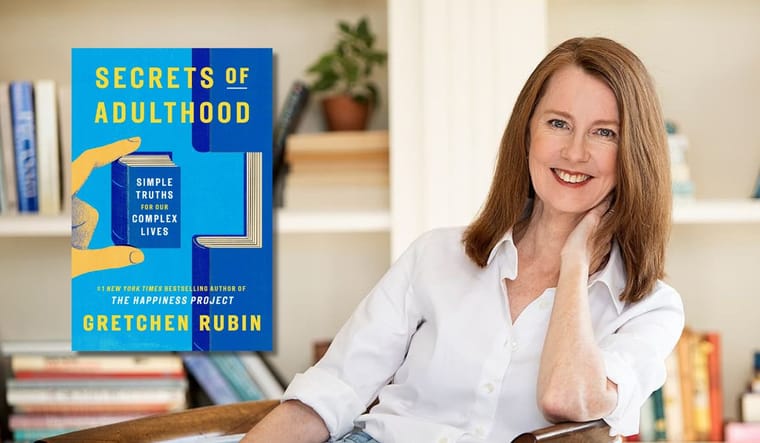Meet the Woman Behind the Bestselling New Book, Fast Like a Girl. She's Cracked the Code for Optimizing Women's Health
Mindy Pelz is tired of women being given one-size-fits-all solutions for the health issues that plague us.
Chronic conditions like Alzheimer’s, cancer, diabetes, autoimmunity, and cardiovascular disease are skyrocketing—and what’s striking about the surge of these problems is that women are suffering disproportionately. What’s worse, the go-to remedies rarely take into account our hormonal needs, says Pelz.
She’s on a mission to change that.
In Pelz’s groundbreaking new book, Fast Like a Girl, the women’s health and fasting expert provides a much-needed manual for women, specifically. She’s spent her career in the health trenches with countless patients, studying and testing almost every popular diet fad that’s emerged. And what Pelz’s research and experience has shown her is that the ancient tool of fasting is deeply powerful—if you know how to use it.
The Sunday Paper sat down with Pelz to talk about why we’re hearing more and more about intermittent fasting, how women need to fast based on their hormones, and what all of us would do well to remember as we embark on get-healthier endeavors in 2023.
A CONVERSATION WITH DR. MINDY PELZ
We are hearing a lot about intermittent fasting these days, and how it can lead to everything from weight-loss to longevity. What has been your biggest learning about fasting in the last few years studying this topic?
To understand fasting and how crucial it is, it’s helpful to think back to our primal days. We came out of the cave and didn’t have food at our disposal. We had to find food. We’d run for hours on empty stomachs. Then, after we made a kill, we came back to the cave and feasted. The human body thrives on this feast-famine cycling. But most of us never put ourselves in a food deprived state. We’re only feasting. And we’re aging and developing disease more quickly as a result.
Fasting is a natural healing state. When we dip into a fasted lifestyle, our body heals in a way that we’ve never seen before. The body will drop weight, balance hormones, detox, repair the gut, re-set dopamine and the immune system—all of this happens when you go into this fasted state, when you start burning fat for energy. Fasting is an ancient tool people have been using for years, and the reason it’s taken off now is because diets don’t work.
You have officially cracked the code on how women need to fast based on their hormones. Fill us in!
Here’s the conversation I’m really hoping is going to come out of this book: Women are hormonally driven. Our moods, our appetites, our energy, our sleep, the way we burn fat—all of it is driven by our hormones. Yet we have a huge gap in information about our hormones. Do you know what’s hormonally happening to you as you move through perimenopause? Does a 13-year-old girl know why she craves carbohydrates the week before her period? There’s so much lack of knowledge around hormones.
When I started to take a deep dive into studying intermittent fasting, it became clear that when women don’t vary their fasts, their hormones are impacted. When I dove into what our sex hormones need, I saw that as our hormones are pulsing in and out at different times of the month, we need different foods and energy intakes to optimize those hormones.
As intermittent fasting started gaining popularity, women were reporting less than ideal symptoms. Yet while the media would have women believe fasting isn’t for them, that’s just not true. I discovered how to vary intermittent fasting styles based on our hormone cycles to optimize its health benefits.
In a nutshell: At times of the month when estrogen is high, you can (and should!) lengthen the amount of time you fast and minimize your carbohydrate intake to optimize the amount and quality of estrogen. When progesterone is rising, you’ll want to skip fasting and consume more complex carbs (what I call hormone feasting foods) to optimize that progesterone.
What’s your advice for our postmenopausal readers? What’s happening on the hormone front for a woman solidly in menopause—and how should she think about fasting?
As estrogen declines, a woman’s brain and body recalibrates to that decline. That loss of estrogen makes us more insulin resistant. This explains why a diet that worked wonders when you were 35 doesn’t have the same effect at 45 or 55. Same diet. Same body. But you don’t have estrogen to make you insulin sensitive. So, you need to adapt as you move into those years.
Intermittent fasting can still help you balance what estrogen you do have. It will keep your estrogen at age-appropriate levels through your postmenopausal years—not to mention it’ll also help you counter any insulin resistance you may be experiencing.
I know your new book is for women, but what’s your message for the men out there? Can they follow the Fast Like a Girl protocol and still see benefits?
There are two things I want male readers to know: First, incredible healing can take place when you fast, and varying up the lengths of your fasts is key. Second, when men understand that women’s hormones give us a wide range of feeling, they can deepen their relationship with every woman in their lives.
This is a time of year when many of us are thinking about how we can improve our diet. What’s something you want all of us to remember as we embark on get-healthier endeavors in 2023?
First, whatever diet you choose, pair it with fasting. You’ll get a better result. Dry January? Plant-based? I don’t care what it is. Pair it with fasting and you’ll amplify the healing effect you’re trying to get with diet.
Second, ask yourself this: Can you sustain the health habits you’re implementing? Most of us forget the importance of moderation, so we go to the extreme and then fall off course. A healthy life has a lot of ebbs and flows. There are times when you’ll eat healthy and get plenty of exercise and sleep—and times you won’t. The best health habits really are the ones you can stick to throughout the whole year.
Dr. Mindy Pelz, D.C is a bestselling author, keynote speaker, nutrition and functional health expert who has spent over two decades helping thousands of people successfully reclaim their health. She is a recognized leader in the alternative health field and a pioneer in the fasting movement, teaching the principles of a fasting lifestyle, diet variation, detox, hormones, and more. Her popular YouTube channel (which just celebrated 18 million lifetime views) regularly updates followers on the latest science-backed tools and techniques to help them reset their health. To learn more, visit fastlikeagirl.com .
Question from the Editor: Have you tried intermittent fasting or time-restricted eating? What’s been your experience with this, or other health habits you’ve implemented so far this year?
Please note that we may receive affiliate commissions from the sales of linked products.



